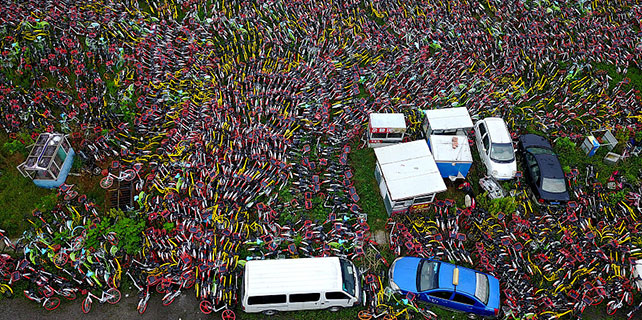Smoothing the path for better trade links
|
Stephen Ketu says that most of the people in Ghana whom he helped into the export business with China are now very rich. Provided to China Daily |
Businessman helps African entrepreneurs overcome the problems and misunderstandings linked with imports and exports
When Stephen Ketu arrived in Beijing in the late 1990s, he worked for small change and gifts, cutting the hair of Ghanaian diplomats. Today, he is a central figure in trade between China and Africa.
The 50-year-old business tycoon traveled to the Chinese capital in 1998 after four years in Hong Kong to renew his passport, but was told by the Ghanaian embassy he would need to wait for four months.
To cover his costs, he began offering haircuts to embassy workers, some of whom paid him, while others gave him gifts or bought him lunch as a token of appreciation.
But he had an eye on the big picture, seeking out business opportunities.
"I began exporting marble (and) tiles to Norway after learning how to authenticate various specifications," he said recently at an event attended by visiting African journalists in Beijing.
Before taking the leap to exporting tiles, his first objective was assimilation: setting aside his traditional Ghanaian food, learning Mandarin and getting to know the locals. It paid off - he married his Chinese fianc��e a couple of years later, and she now helps run his company.
In 2004, Ketu climbed a few steps up the ladder, becoming his own boss after obtaining a license from the authorities to export tiles and building materials to Ghana.
The fast pace of imports and exports saw his business growing bigger at a time when China's booming tile factories were seeking new markets abroad.
Five years later, the Ghanaian successfully established Tianjin Able Import and Export Trading Co Ltd, which has offices in Tianjin and Beijing, more than 30 Chinese partners and an annual average turnover of $150 million. By the end of 2016, the company had exported more than $560 million worth of products, including tricycles, buses, sanitary equipment and various types of machinery, mostly to West Africa.
Ketu then began helping his compatriots to strengthen their business dealings with China as trade links grew stronger between Ghanaian importers and Chinese manufacturers.
"Most of the people in my country that I helped into the export business with China are now very rich," he says, adding that he has also helped several Chinese entrepreneurs invest in Ghana.
"We have done a lot, but I'm always looking for other opportunities, especially for Africans," he says. "We want to work with others because there are a lot of opportunities here in China for Africans to explore."
As he keeps an eye on the whole of Africa, aiming to deepen collaboration with other entrepreneurs and share his vast experience of Chinese manufacturers and products, he's aware of the challenges on both sides of the import-export trade chain and is already helping minimize the risks that traders experience.
The hurdles African entrepreneurs endure exporting products from China are sometimes compounded by the fear of being duped or receiving the goods with the wrong specifications, says Kwadwo Atuahene, trade attache at the Ghana embassy in Beijing.
Top Chinese manufacturers and government officials have warned African businesses against dealing with unrecognized companies.
"When you select the contractor, service provider or manufacturer, please select credible Chinese national companies or companies that are well recognized," advises Hu Weidong, vice-president for international affairs at Dongfang Electric Corp, a company involved in several hydropower projects in Ethiopia, Tanzania, Rwanda and Egypt.
"Many times, African countries and our friends only make selections based on the price tag; they don't know the disadvantages," Hu said in May while speaking at the company's headquarters in Chengdu, Sichuan province, about the misconceptions dogging the image of Chinese products in Africa.
Qian Keming, vice-minister for Africa relations at the Ministry of Commerce said at a news conference in March following the National People's Congress: "We have also signed bilateral trade and investment agreements with African countries, and we have established a bilateral mechanism through which we can overcome these challenges."
Qian was responding to a question about the quality of Chinese-made products in Africa.
But Ketu says limited information about the specifications and quality of products and the absence of trade liaisons on both sides are giving rise to inconsistencies.
"Sometimes people (African businessmen) come to me and want to buy something and don't have the specifications of what they want. They are only concerned about the price of the product," he says.
At the Ghana embassy in Beijing, the trade attache Atuahene says he is coordinating with a business center run by Ketu to enhance smooth trade exchanges.
"When we saw Ketu, then we thought that he could set up a business center backed by the embassy - based on his experience and his knowledge of China - to assist businesspeople to avoid troubles," says Atuahene, who adds that the center makes his job easier.
With offices in Beijing and Accra, the business center verifies manufacturers and products and arranges shipment to avoid hitches and risks for both parties.
Ketu says problems on both sides of the import chain will be minimized once African importers understand Chinese manufacturers and the products they want to trade.
"In order to import or export quality products, you must have the appropriate specifications you want to import or export," he says.
Alpha Daffae Senkpeni is a journalist with FrontPage Africa, based in Liberia, who is visiting China Daily as part of a 10-month China-Africa Press Centre fellowship.
For China Daily

















